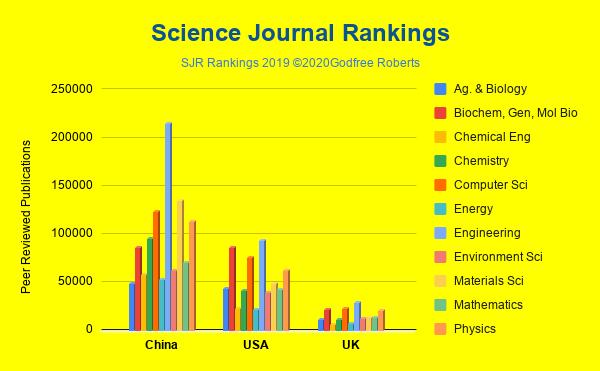Link: https://johnmenadue.com/what-did-we-do-to-china/
Please see link above for source text.

Link: https://johnmenadue.com/what-did-we-do-to-china/
Please see link above for source text.
Half of us reckon China is responsible for improving the relationship between our countries, forty per cent expect China to attack us, and two-thirds say its interference in our affairs is a major problem. The Lowy Institute’s Natasha Kassam says, “No other country in the world – not Taiwan, Japan or South Korea – is talking about the likelihood of war on a day-to-day basis”.
When China went public with its worries, DFAT brushed them off, “The fourteen items identified by the Chinese embassy document are seen by the Department of Foreign Affairs as key to Australia’s national interest and nonnegotiable … the government makes sound decisions in our national interest and in accordance with our values and open democratic processes”. The Chinese, on their part, see a pattern of bad-faith dealings, negative discrimination, and unprovoked hostility, illustrated by our consistent opposition in the United Nations:

Having invaded four of China’s neighbours, Australia became the first nonlittoral country to criticize China’s behaviour in the South China Sea, then outdid the US in demonising its Xinjiang and Hong Kong policies, while using unsubstantiated allegations of Chinese cyberattacks to poison public opinion. Though Covid-19 was endemic in Europe and the US before it reached China, Scott Morrison loudly demanded a weapons-style inspection into its Chinese origins–then fell silent when the US refused to sign the UN resolution to investigate the source of the virus. When Shaoquett Moselmane repeated the WHO’s praise for China’s coronavirus response, Mark Latham MP called his approval “disgusting”.
At dawn on June 26, 2020, forty police arrived at Moselmane’s home and stayed until 1:30 am the next morning. They brought sniffer dogs, took hair and dust samples from his car, searched the car engine and door rubbers, had a helicopter hovering and raided his parliamentary office, and froze the Moselmane family’s bank accounts. Despite Peter Dutton’s public allegiance to the United States, he told Ray Hadley, “You can’t have an allegiance to another country and pretend to have an allegiance to this country at the same time”.
Since 2018, Canberra has rejected a dozen Chinese investments, citing ambiguous, unfounded “national security concerns,” rejections that led directly to large Chinese losses, and put infrastructure, agriculture and animal
husbandry off-limits while launching a hundred anti-dumping and antisubsidy investigations of Chinese products.
Given China’s pride in finally becoming a high tech exporter, our decision to ban Huawei was particularly cruel. Malcolm Turnbull led the charge against domestic adoption of Huawei, then lobbied the UK against it. Our alibi–Beijing can compel companies to provide any information–ignores identical American, European and Australian laws. We next revealed our hypocrisy by ignoring Huawei’s offer to base its network security division here–an asset of considerable intellectual value.
Our stigmatizing normal cooperation and imposing restrictions like the revocation of Chinese scholars’ visas caused a scandal in China, as did intimidatory predawn searches and reckless seizures of Chinese journalists’ homes and properties without charge or explanation. Now the CSIRO has told staff it will not renew its climate research partnership with the Qingdao National Marine Laboratory, following an assertion by ASIO’s Mike Burgess that ocean temperature modelling could assist submarine operations against Australia–a decision was met with robust criticism by Australian scientists.
Although Canberra politicized Chinese trade and investment and violated market principles for decades, between 2015-2020 China consistently lowered tariffs on our products to the point that 95 per cent of our exports enjoyed zero duties. We have targeted China with one-third of our ongoing WTO actions and two-thirds of current measures, despite the Productivity Commission finding “no convincing justifications for the measures” and imposed hefty duties on their steel (144%), aluminium and chemicals. We initiated 106 anti-dumping and anti-subsidy investigations of Chinese products, yet complained bitterly when China finally resorted to the WTO for the first time with barley and wine tariffs.
My day job as editor of a newsletter for companies doing business with China forces me to acknowledge that the PRC accomplishes more in an average week than the US or Australia in a typical year. China will indigenize 28 nanometer IC production this year, 14 nm next year and 7-10 nm in 2023. The country hit
98% home ownership and eliminated extreme poverty last year and its public health management set a new world standard.
As P&I readers know, the PLA need not fear America’s military, while its economy is unrivalled for size, stability, depth, and breadth. Its banks are the largest and richest on earth and its national unity and morale are unequalled.

On the current course, our future seems bleak. Hypocrisy, combined with our antipathy to China’s rise has alienated us both from the new world leader and our neighbours in the world’s leading economic region. China will generate half of global GDP growth this year and, if it has not already done so, will overtake the US diplomatically, economically, financially, socially, scientifically, technologically, and militarily within twelve months.
Consider making a donation to support independent journalism Pearls and Irritations relies totally on donations from its readers. We are
independent and we don’t accept financial support from governments, their agencies or vested interests such as fossil fuel and arms manufacturing companies. We do not accept advertising, nor do we have a paywall.
Please consider a donation to help Pearls and Irritations extend its voice and reach.

After graduating from the University of Queensland, Godfree Roberts received his doctorate from UMass, Amherst. His newsletter, 'Here Comes China', reflects his fifty years' study of Chinese civilization. His book, 'Why China Leads the World: Talent at the Top, Data in the Middle, Democracy at the Bottom', re-examines everything we think we know about China–its government, its economy, its human rights and its soft and hard power–and demonstrates that our ‘knowledge’ is mostly nonsense, dreamed up during the 1950s and amplified over generations.